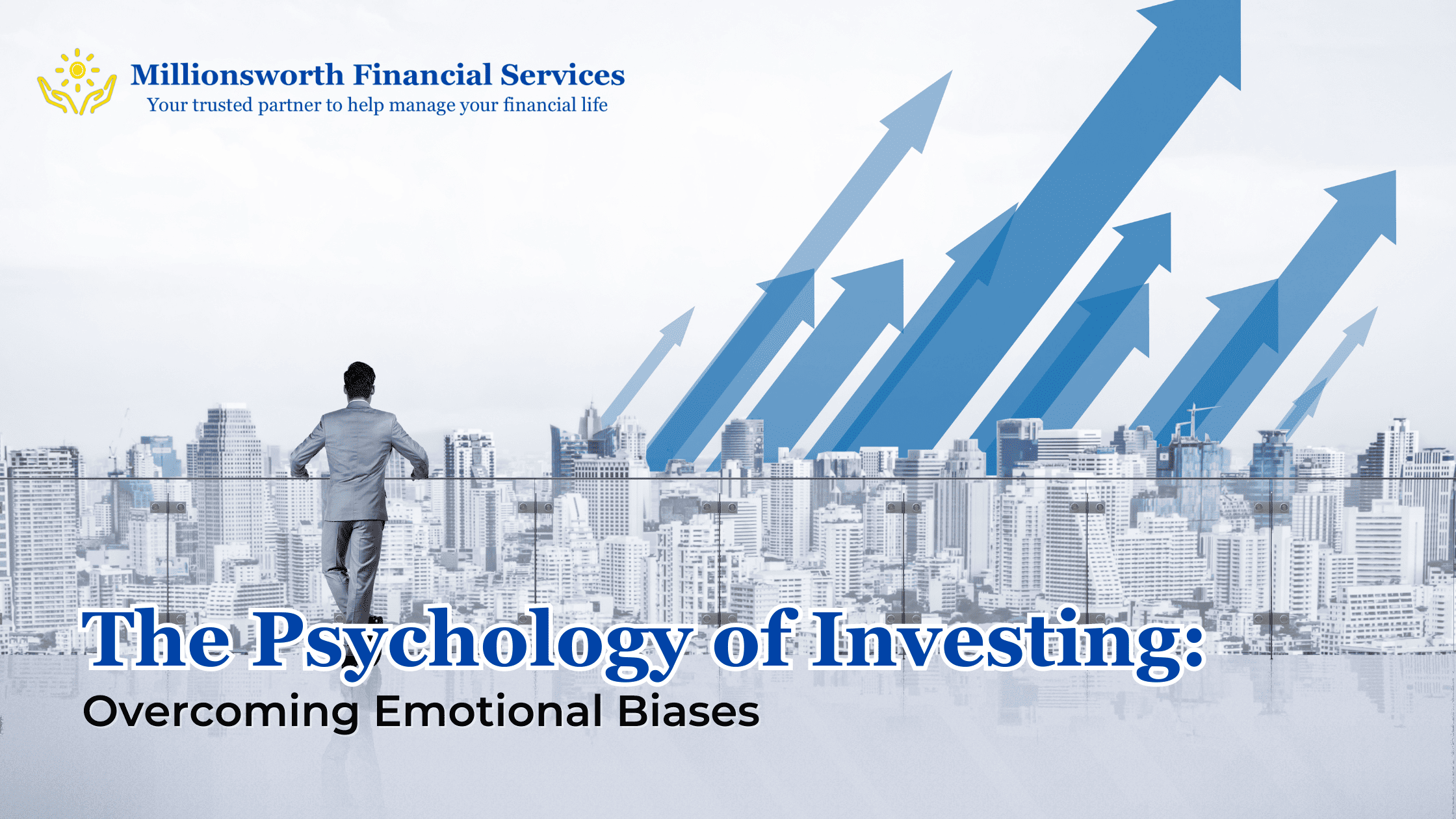“If you cannot control your emotions, you cannot control your money”- Warren Buffett
You might have come across this popular quote by Warren Buffett where he emphasizes the importance of emotional intelligence in financial management. Let’s understand the quote in depth.
John, an active investor, often panicked during market dips, selling his holdings at losses. After several setbacks, he consulted an expert, who analyzed his case and found that although he had a good sense of the market, his decision-making was hindered by common emotional biases. John’s experience is not unique; many investors face similar challenges. Let’s explore these emotional biases and strategies to overcome them.
Common Emotional Biases in Investing
- Confirmation Bias: John often sought information that confirmed his existing beliefs while ignoring contradictory evidence. This rigidity reinforced poor investment decisions, leading to losses. Confirmation bias occurs when investors only consider information that supports their views, disregarding anything that challenges them. To avoid this bias, maintain an open mind and consider all relevant information. Engage in discussions with individuals who hold opposing views to broaden your analysis and develop a more balanced perspective.
- Overconfidence Bias: Investors sometimes become overconfident in their decisions after meticulously researching and analyzing market conditions. In the late 1990s, many investors were overconfident in the technology sector, investing in companies without solid business models. When the bubble burst in 2000, these investors faced massive losses. To prevent overconfidence bias, seek opinions and advice from other investors and professionals. Stay updated with news and critically analyze its impact on your investments.
- Loss Aversion Bias: The fear of losing money often outweighs the joy of gaining it, leading to loss aversion bias. This bias prevents investors from cutting their losses and reallocating funds to more promising investments. For example, many investors hold onto declining stocks, hoping for a rebound, only to watch them drop further. Conversely, they might sell winning stocks too soon to lock in gains. Accept that market volatility and losses are part of investing, and focus on long-term performance rather than short-term fluctuations.
- Herding Bias: Herding bias occurs when investors follow the actions of a larger group, often disregarding their own analysis. This bias is prevalent among stock market investors who buy stocks because others are buying, regardless of the company’s fundamentals. Avoid herding bias by independently analyzing each investment opportunity and making decisions based on thorough research. Act as a critic, scrutinizing trends and verifying facts before following the crowd.
- Anchoring Bias: Anchoring bias happens when investors fixate on specific information, such as a stock’s past price, and base their decisions on that reference point rather than current realities. For example, if a stock was previously priced at Rs. 100 but has dropped to Rs. 50, an investor might anchor to the Rs. 100 price, believing it’s undervalued, and buying more without considering current market conditions or the company’s actual operational performance. Avoid this bias by focusing on present market conditions and company performance rather than past prices.
- Regret Bias: Regret bias arises from the fear of future regrets, influencing financial decisions and often leading to overly cautious or reactive choices. For instance, an investor might choose a low-risk, low-return option over a potentially higher-return investment due to the fear of losing money and regretting the decision later. This bias can also cause hesitation in making timely decisions or lead to over-diversification to avoid the regret of a concentrated loss. To address regret bias, educate yourself about market conditions, maintain a balanced portfolio to ensure optimal risk-return strategy, and adopt a goal-based long-term perspective. Consulting financial professionals can assist you in making rational decisions and reduce your fear.
By understanding and addressing these emotional biases, you can make more rational decisions and improve your chances of achieving long-term financial success. Seeking expert advice is always a good practice to ensure the rationality of your investment decisions. At Millionsworth Financial Services, we are committed to helping investors navigate these psychological challenges. We provide personalized financial solutions to help you overcome emotional biases and make informed investment decisions. We encourage you to schedule a meeting with us to learn how we can assist you on your path to financial success.



